Table of contents
- 9 Key Ideas for Creating an Amazing Book Cover
- What is the Right Font for Your Book Cover?
- The Genre of Your Book Guides the Cover
- Should You Include Deeper Messages within Your Cover?
- Is There A Symbol Representative of the Book’s Theme?
- Should You Make Your Cover Simpler and More Minimalistic?
- Would Your Cover Look Better in Black and White?
- Do You Have Awards and Endorsements to Add to Your Cover?
- Try a Striking Silhouette
- Test Your Book Cover Ideas
- Last Word on Book Cover Ideas
Looking for book cover ideas for your upcoming work?
“Never judge a book by its cover” is a repetitive phrase we’ve all heard in school and rom-com movies.
While true in theory, everyone judges a book by its cover (for better or worse). To catch readers' attention and sell more books, you need a captivating book cover.
Here’s a real-life example. When I was working with Orson Scott Card, he once told me the story of when his publisher designed the original cover of Ender's Game. He didn't like it at all because it didn't show a scene in the book (the original cover was just two spaceships).
His publisher said the cover shouldn't be a scene from the book, but something that truly represented its genre. Today, years later, Orson agrees that's exactly what the book needed. Ender's Game went on to sell over 7 million copies in 34 different languages!
I can guarantee the book's cover played a part in that. The best book covers don’t just decorate the front of your work but serve to intrigue potential readers.
Publishing companies and big-time authors know what they're doing when they make book covers. In truth, book cover design isn’t simply an artistic endeavor. Book cover design is more like a calculated science that uses art.
Along with a professional human editor, a professional book cover designer is the other necessary expense for self-published authors. Your book cover is your number one marketing tool. If you design it yourself, there is a 99% chance that it will negatively affect your sales.
Intimidated? Don't be. Even the less-artistic among us can come up with impactful book cover ideas. Sometimes, all you need is a little inspiration to catch your reader’s eye.
Let's look at some excellent book cover ideas and analyze some core aspects of book cover design. You can use this information to come up with cover ideas for your next book or for a book you've already published that you're wanting to update!
We've put together some of our favorite book cover ideas to help you find out which is best for you!
- 9 tips, tricks, and ideas for imagining your new book’s eye-catching cover
- How to test multiple options to find a good book cover
- The most important design elements in your cover, from typography to picture choice
- The 4 best resources to take your cover from inspiration to reality (and some discounts, too)
9 Key Ideas for Creating an Amazing Book Cover
As we just mentioned, book cover design is a science made up of several different criteria. In order to have the best possible cover, you need to make sure your cover satisfies all aspects to maximize its appeal to potential buyers.
Here are 9 questions, tips, and tricks to think through when creating your book cover.
- What is the best font for my book to bring out the subject matter?
- Your cover picture or illustration should be guided by your genre and book.
- Is your book a good fit for a deeper message on the cover?
- Are there any symbols that will intrigue readers about your book?
- Minimalism is modern and sleek on some covers.
- Black and white doesn’t have to be boring.
- Recognitions are worth showing off!
- Would a striking silhouette convey your book’s meaning?
- Find out what potential readers think of your designs.
What is the Right Font for Your Book Cover?
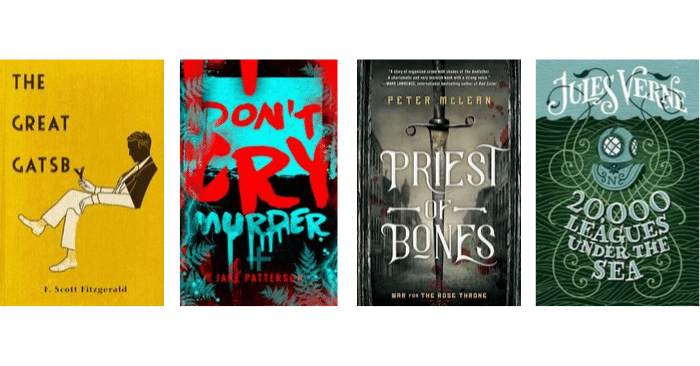
Fonts are like apps. There's one for every occasion. Some are whimsical and breezy; fitting for fantasy or romance books. Others are downright terrifying — perfect for a psycho-thriller or horror tale.
Fonts are also among the first things your readers see when they look at your book. Eyes are naturally drawn to words written in big letters, and you want to make sure potential readers get the right first impression when they see the title of the book.
Just take a look at the cover above for Don't Cry Murder. That font points perfectly toward a twisted, thrilling plot. As for the font of Priest of Bones, it actually resembles bones.
You may want to choose quirky hand lettering for a young adult coming-of-age tale, or a minimalist sans-serif to convey a more serious or biographical work. Just be sure your font and your book deliver the same tone.
What makes an effective book cover? A well-chosen font or image that reflects the book’s theme can help make an effective book cover.
The Genre of Your Book Guides the Cover
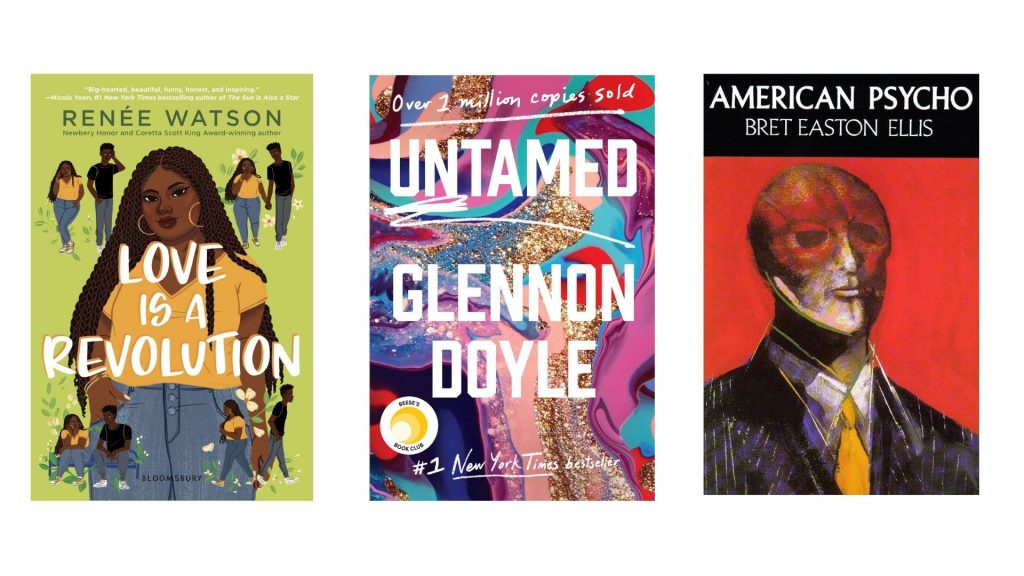
This should go without saying, but your picture should match your genre. Could you imagine if Stephen King's It had a cute puppy on the cover? The reader would surely be in for a surprise.
That example may seem a bit extreme, but there are too many authors out there who don't get specific enough with their picture. Show the readers a peek into the story you’re telling. Glennon Doyle’s Untamed is clearly about living authentically and creatively. Just look at it!
Pro tip: If you ever get unsure about what images are suitable for your genre, check out what your competition's book covers look like. You shouldn't copy them exactly (the goal is to stand out a bit), but at least you'll get a great idea of what to use.
Remember, your photo shouldn't just fit your genre. It should also support your specific book.
Take American Psycho, for instance. The cover art depicts a man in a business suit with blood covering his eyes. If you've read the book (or seen the movie), you know this image fits perfectly.
But what if you replaced the picture with a machete-wielding man in overalls and a hockey mask? Still a horror/thriller, right? However, that's another image for another story.
Should You Include Deeper Messages within Your Cover?

Some authors take a neat approach to their book cover design through the use of subtle messaging. Some of these deeper messages have come in the form of plot foreshadowing, holographic book covers, and even cryptic ciphers leading to the CIA's very own backyard!
For example, the cockroach reading a book references Kafka’s Metamorphosis, arguably his most famous work. It’s the cover for Why You Should Read Kafka Before You Waste Your Life, and any reader familiar with the subject matter will pick up on the cover’s message immediately.
One of my favorite examples shown above is Against Happiness. What do you think of when you picture a smiley face? I'll go to wager you thought of a simple yellow and black, emoji-like grin. It's iconic.
With this book cover, the same elements from that original smiley are used, but with a twist. Instead of displaying a happy smile, the book's title curves downward like a frown, supporting the words “Against Happiness.”
While you’re thinking about the cover, don’t forget your content! I made a video showing you how to copyright your book in under 7 minutes.
Is There A Symbol Representative of the Book’s Theme?
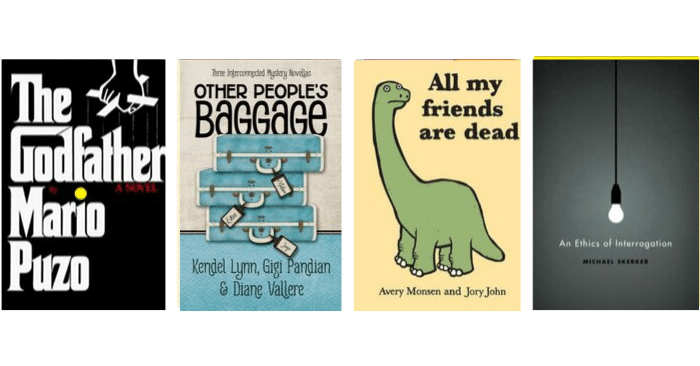
Building on the subtlety point, our brains automatically associate certain symbols with particular themes. For instance, if you see a crown on a book cover, there's a good chance some sort of royalty is involved.
What about a gavel? That could definitely symbolize a legal thriller. Use these to your advantage. When a potential reader is scanning the shelves (or Amazon search results), you want to give them visual clues for what kind of book you're offering. Symbols can do that — by speaking to both your genre and your specific plot.
The lonely dinosaur in All My Friends are Dead is a lighthearted way to symbolize the more weighty topic of death.
With The Godfather, you see the marionette in the upper right-hand corner. That’s because we all know that the Don pulls the strings.
Should You Make Your Cover Simpler and More Minimalistic?
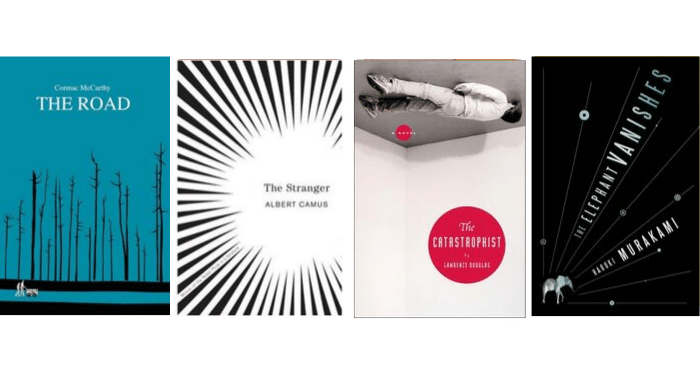
I know I'm not the only one who's run across a book cover that has just got way too much going on. These sorts of covers turn me, and most readers, away from the book. I'm not trying to play Where's Waldo when looking at a book cover (unless it's a Where's Waldo book).
If you're selling online, think about the thumbnail picture your book cover will have on Amazon or Kindle. Book covers with a loud color scheme and too many focal points will appear messy and convoluted in a thumbnail.
Sometimes, more straightforward book cover ideas are the best options. Even for more complicated covers, you want to remove anything that might be an unwanted distraction or unnecessary clutter. Even eliminating a subtitle can make a big difference from a design perspective.
Would Your Cover Look Better in Black and White?
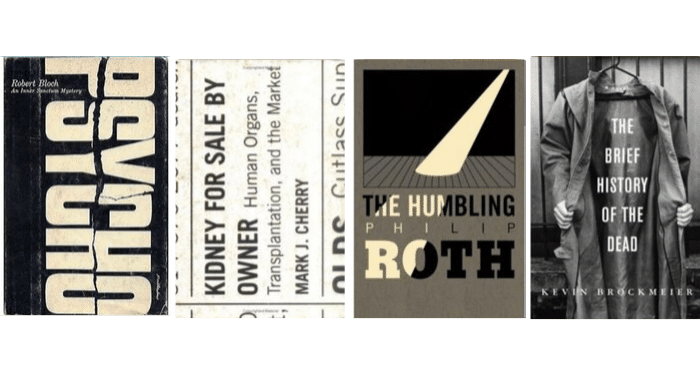
If you're unsure whether your color selections will be overly gaudy, black and white may be a great option. This option is getting increasingly popular as the years go by, particularly for intense or mysterious content.
If you have a more intellectual or historical book, an understated color scheme or plenty of white space could lend a sense of gravitas. This is probably not the best choice for a novel aimed at high school students.
Just because the color palette is black and white doesn't mean that the graphic design has to be minimalistic. When correctly done, even complex book covers look great as B&W.
Do You Have Awards and Endorsements to Add to Your Cover?
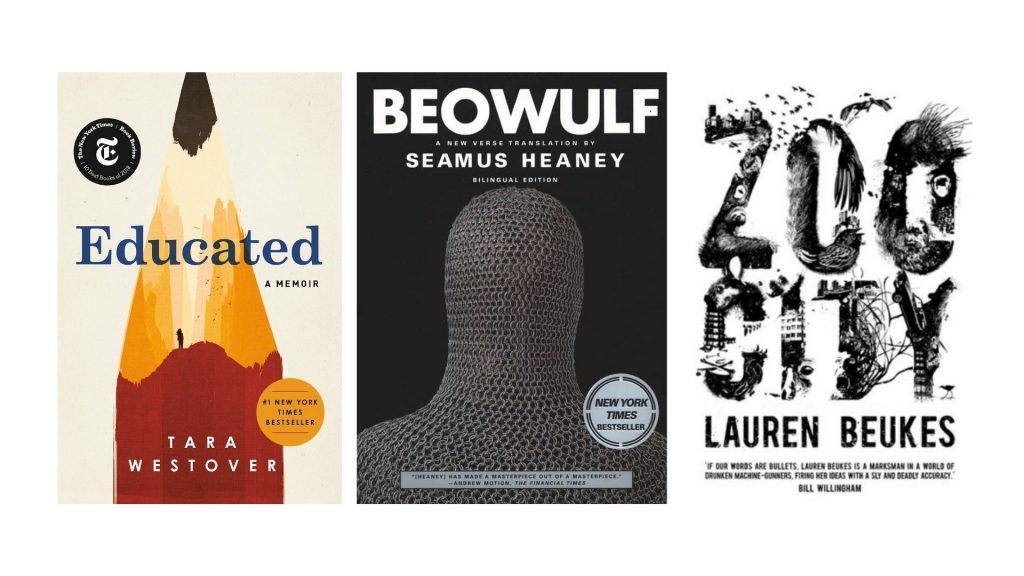
Social proof is a powerful sales technique. If readers know that other people appreciated your book, they're more likely to give it a read themselves. If you have relevant, impressive awards to talk about, add them to your cover.
Similarly, if you’ve received an endorsement from a well-respected voice, be sure to put the author’s name and positive review on your back cover — or even the front, if the remark is concise.
Just don't overdo the accolades, or your cover will look cluttered and disorganized at first glance.
Try a Striking Silhouette
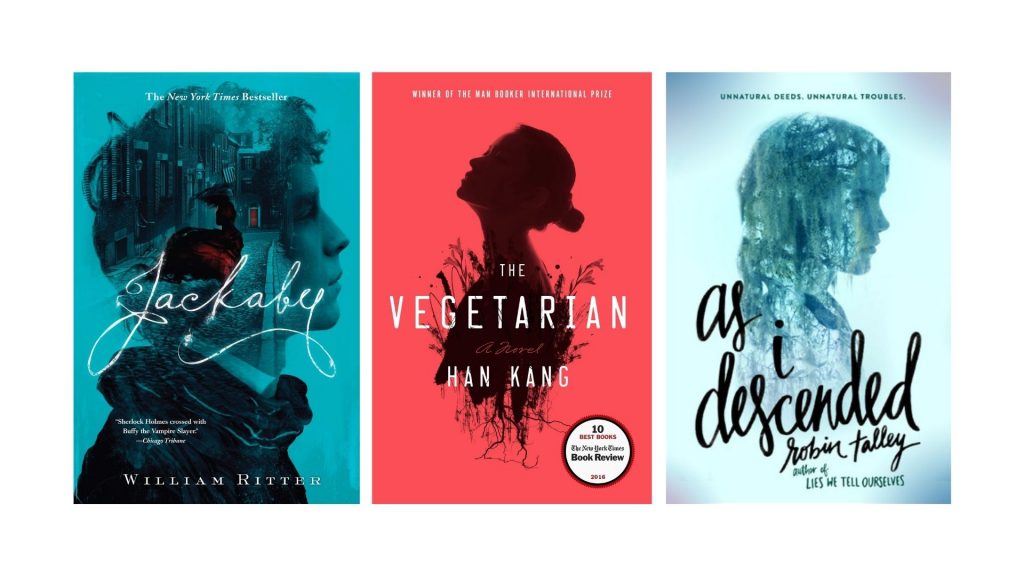
Is your book all about the main character — their inner world, their struggle, and even written in the first person? If you’re hoping your readers fall in love with your protagonist, why not feature them on the cover?
A well-done silhouette can intrigue potential buyers. If they want to know more about your character, they’ll just have to pick up a copy! Note: It’s usually best to keep the rest of the cover simple if you’re featuring a silhouette as your standout design element.
Test Your Book Cover Ideas
When designing a cover, chances are, you'll end up with a few different ideas. You'll want to go with the option that will help you sell the most books, but how can you predict which cover readers will be most impressed by?
Fortunately for us, there is a way. You can use PickFu.
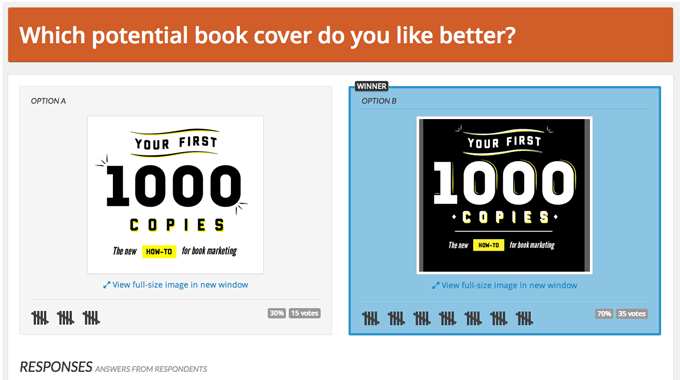
PickFu is a platform that allows you to perform A/B testing between 2 cover designs. Simply upload your book covers, and the PickFu community will vote on which one they like best. This can give you an accurate idea of where your covers stand.
And while you’re at it, take a couple of your templates to social media. Create an Instagram poll or have people vote in the comments. No one is afraid to share their opinion on the internet, it seems!
Last but not least, print authors should build a 3D mock-up of their book. This will allow you to see precisely what your book will look like from all angles — not just the top. For more info, check out my handy guide on how to create a book cover mock-up.
What book covers sell best? The book covers that sell the best showcase the book’s theme and genre without being too busy.
Increase Your Book Sales
Over 47,000+ authors, NYT bestsellers, and publishing companies use Publisher Rocket to gain insight to the market.
Check It OutLast Word on Book Cover Ideas
You don't need to be an artist to have a great book cover idea. Most of the time, following what works is the way to go. Since an excellent book cover idea can help bring success to your book, it's best to invest some time into it.
How do you make a catchy book cover? You make a catchy book cover by keeping your design tasteful and matching your cover to your book’s genre. Symbols, hidden meanings, the right color scheme, and visible awards can also help attract potential readers.
When I shop on Amazon or look for books, I examine the book covers closely. If any book cover ever jumps out at me, I save the cover image in a folder I keep on my desktop. That way, when I go to design future book covers, I can look at previous design inspiration.
At the end of the day, the goal is to sell more books. A great book cover idea can help you do just that. If you want to dive even deeper, check out my article on how to master the science of book cover design.
How do I design a book cover? You can design a book cover by brainstorming about your book’s theme, characters, and title with a great graphic designer.
It’s always better to get a graphic designer to weigh in, even if you have your own design ideas or even have some graphic design experience. They know the ins and outs of Photoshop and other design programs, what sells, and if your idea fits the genre well. Plus, they aren’t too close to the story to get attached to a bad design.
Here are my 5 favorite resources for a great book cover:
- Ebook Launch – Professional quality book cover design, affordable pricing and can design for any genre.
- Fiverr is a great option for those who need a design on a budget. I have an article on how to get the most for your money on the platform.
- Damonza designers are award-winning and have a 100% satisfaction guarantee. Use the code KINDLE5 for a discount with Damonza.
- Jeff Brown is a well-established book cover designer who loves collaborating with authors. He specializes in sci-fi and fantasy designs.
- DIY Book Covers is the way to go if you really want to design your own cover. This training will set you up for success.
- Our ISBN Generator for custom ISBNs to include in your design.
- Coverjig is a simple online tool for authors who want to design their own covers on a budget and without learning to use more complex software.
Let me know in the comments what inspired you most from this article. I love keeping up with comments long after these posts go up.

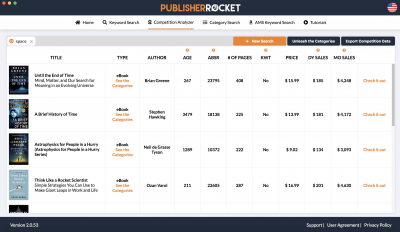

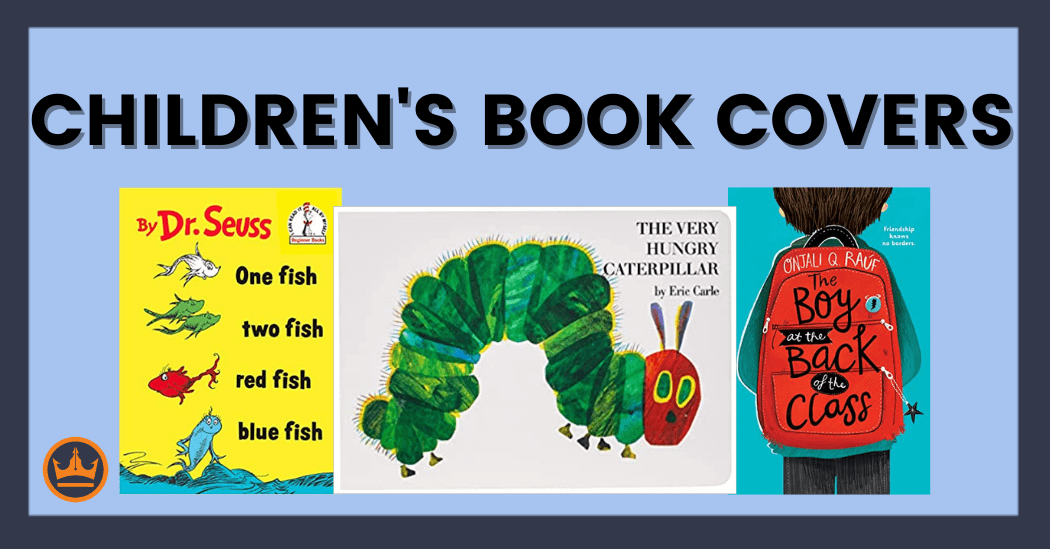
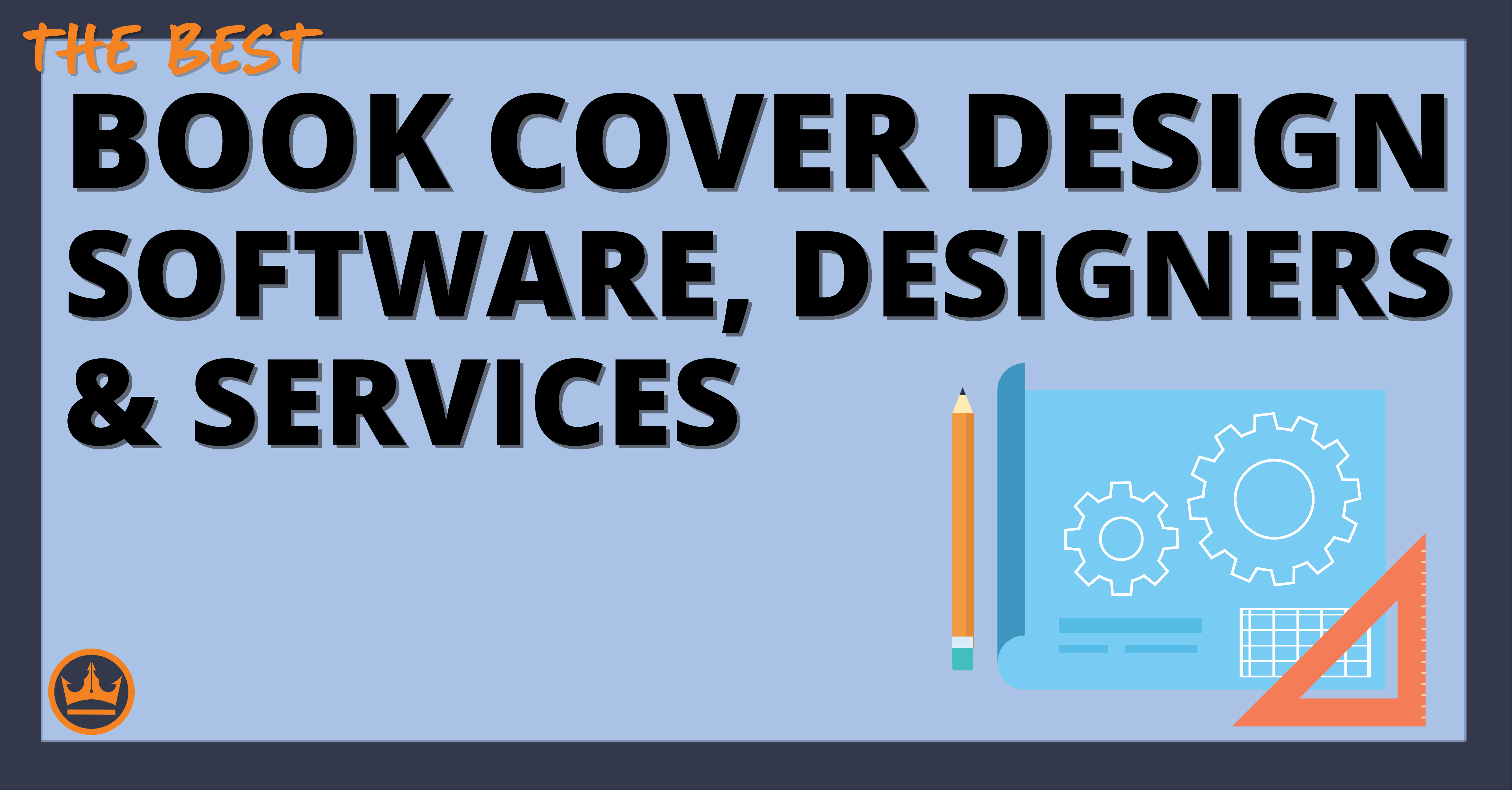
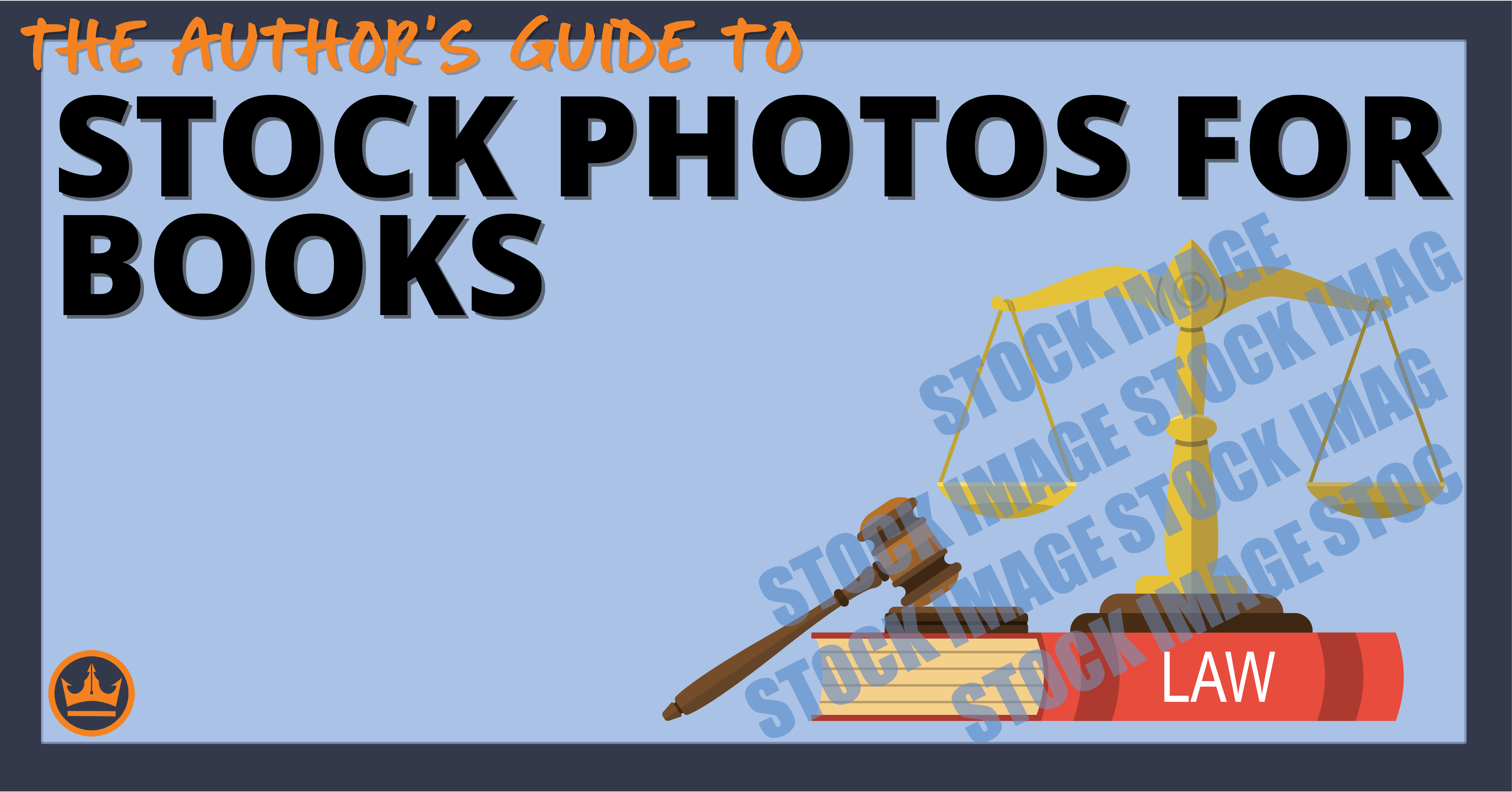
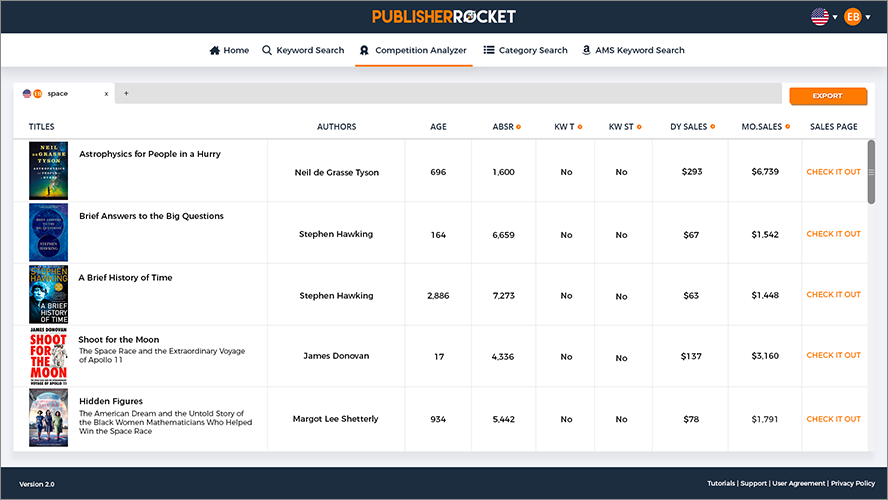
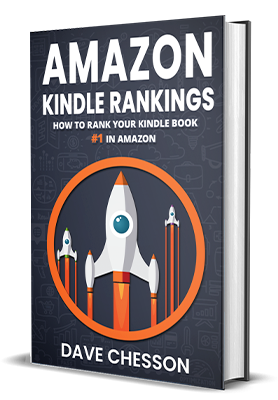
Three things you did not really mention are:
¢ What the cover`s impact is at thumbnail size. Amazon uses two different thumbnails the smallest being a tiny 58 x 87 pixels.
¢ The impact of the title and any subtitle. There are online web pages which can check these for emotional impact.
¢ The author`s name. That is the author`s brand rather than the title. If you want readers to look for further examples of your work then There is a case for putting the author name in bigger text than the title.
As always, great post! Great insights!I was fortunate enough to work with Derek Doepker on one of my first book covers a few years back. He tested 2 different covers in a Facebook Ad to my target audience and compared click-through rates. He also ran a PickFu survey. The results are actually still live (https://www.pickfu.com/O0UVQO)Here is the interesting part…While one cover got 60% of the vote in PickFu.
The other cover had a significantly higher clickthrough on Facebook.I ended up using the one with the higher clickthrough rate. It is fared pretty well.
Your link did not work. Very interesting though. I just used PickFu to pick my cover last week. I did not test an FB ad though. Now I wish I had thought of that.
Very cool – he`s great.
Interesting with great suggestions and examples. I admit, however, I rarely look at a cover. I look at the blurb.
That makes you very odd then Mary. Most people are attracted first by the cover then the first four/five lines of description (All Amazon shows before a ‘Read more…’). Next they might click that ‘Read more…’ The final choice being made from a combination of reviews, price and ‘look inside’..
You may not consciously look at it, but people tend to follow the line of covers down Amazon, then scan to the title and subtitle before deciding to click or not. Heatmap studies have confirmed it, so we might not even know we’re seeing them.
Fantastic wisdom here with generous examples. THANK YOU Dave! On the path to better book covers…
Awesome and super glad to have helped!
In a twenty year business advisory career one of the ‘markers’ for success was and remains generosity of spirit, Dave Chesson has that in spades!
Thanks Tony – that totally made my afternoon to read 🙂
“Never judge a book by its cover.” Pfft…that’s one cliche that will never be followed. That is my favorite part because it is so true if the book cover isn’t good and the book is no reader will want to read it. I need to find the perfect book cover for the book I am writing. (I am twelve so it might not get out) But I still want to try.
Yup, absolutely!